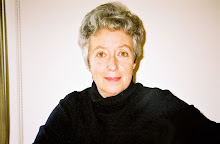Some Washington Post readers have taken reporter Monica Hesse to task for writing about The Diary of Anne Frank as if it resonated primarily with young girls. Hesse's article appeared after the recent death of Miep Gies, the last living protector of the Frank family during their years hiding in an Amsterdam attic in a desperate attempt to avoid capture by the Nazis during World War II. While Anne Frank's story undoubtedly riveted readers who read it as girls and young teens, "for [Hesse] to assume that this feeling is peculiar to women diminishes the profound power of both of these lost lives," wrote Charles Tennes in a letter to the Post published January 16. "It is also obnoxiously sexist," he added.
In a letter published the same day, Edward Hayes Jr. said, "I discovered [Anne Frank] when I was a young black boy growing up in Northeast Washington.... Through its examples of neighborly love, determination for survival and heroism... it inspired a young boy not to take life for granted. The story of Anne Frank is indeed for girls, boys and adults."
Hesse quoted only females in her piece about the diary's power and influence ("Legions of women lose their last link to Anne Frank," January 13). Her point, I think, was to show how girls who were near Anne's age when they read the book were changed and shaped by her account of her ordeal. That's certainly a legitimate angle to take as the last link to the Frank family, also a courageous female, leaves the scene. Still, I have to agree with the Post readers who objected to the narrower focus of Hesse's piece. Anne Frank's diary has crossed generations, cultures, languages and sexes -- 25 million copies in 54 languages. Really, shouldn't that have been the headline?
Subscribe to:
Post Comments (Atom)

No comments:
Post a Comment